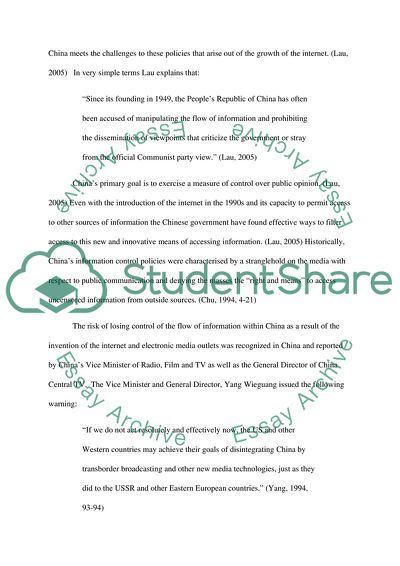Cite this document
(“Chinese Government's Control of the Internet Research Paper”, n.d.)
Chinese Government's Control of the Internet Research Paper. Retrieved from https://studentshare.org/social-science/1716426-chinese-governments-control-of-the-internet
Chinese Government's Control of the Internet Research Paper. Retrieved from https://studentshare.org/social-science/1716426-chinese-governments-control-of-the-internet
(Chinese Government'S Control of the Internet Research Paper)
Chinese Government'S Control of the Internet Research Paper. https://studentshare.org/social-science/1716426-chinese-governments-control-of-the-internet.
Chinese Government'S Control of the Internet Research Paper. https://studentshare.org/social-science/1716426-chinese-governments-control-of-the-internet.
“Chinese Government'S Control of the Internet Research Paper”, n.d. https://studentshare.org/social-science/1716426-chinese-governments-control-of-the-internet.


